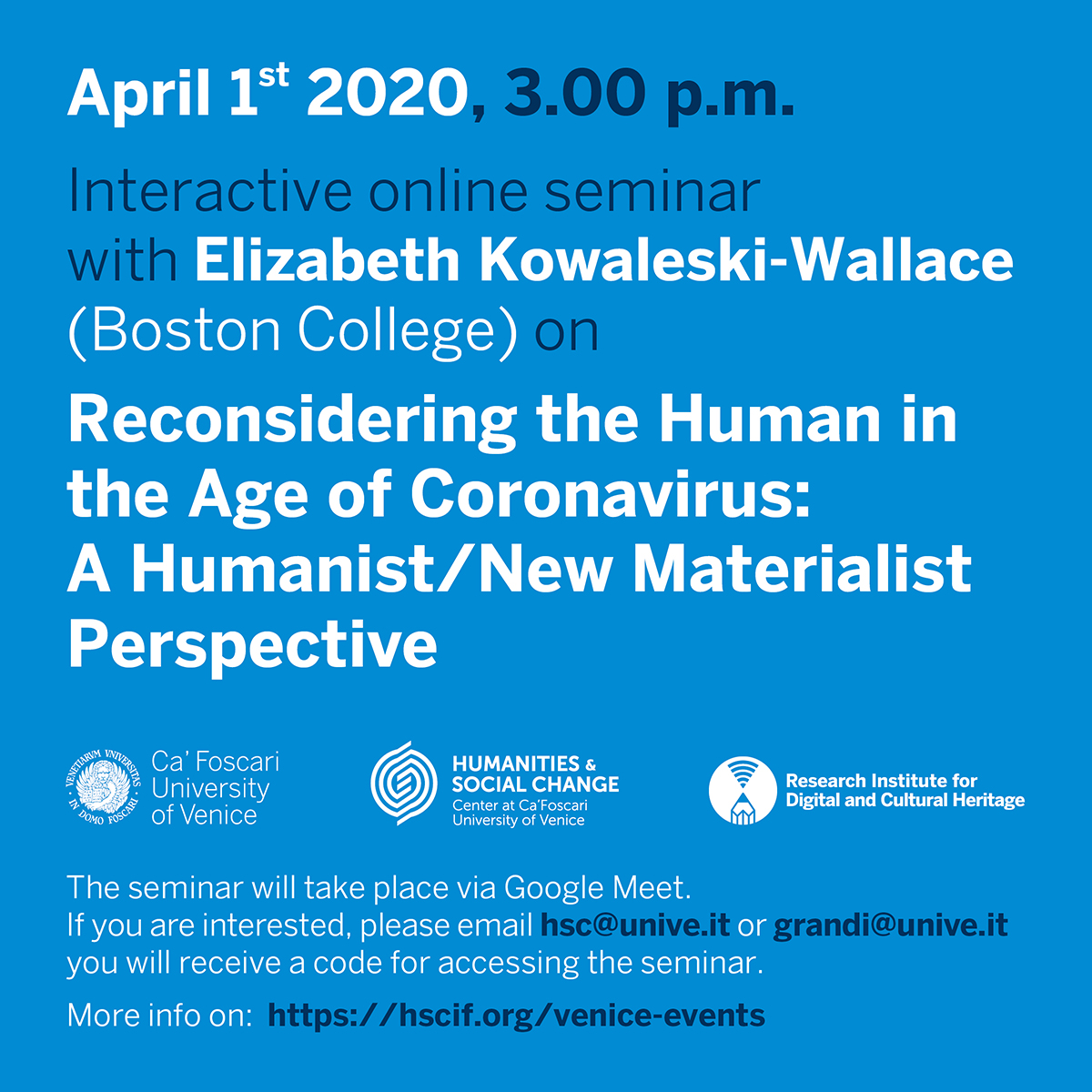April 1, 2020 at 3 p.m. on GoogleMeet
If you would like to participate, please email hsc@unive.it to receive the access code to the online seminar and/or a preview copy of the presentation.
Elizabeth Kowaleski-Wallace is Professor at the English Department of Boston College and specializes in British eighteenth-century literature and culture and feminist and cultural theory (more here).
The seminar is in English.
Abstract (ENG)
“While we are clearly still “in” coronavirus,” we will some day (hopefully not too far away), look back at everything before, including the seminar, as belonging to another age, epoch, moment when all kinds of things were still doable, possible, thinkable.” EKW
In the “after coronavirus” moment, how will the humanities in particular ready themselves to take up the challenges that will surely arise?
My talk will have three parts. First, in Part One I’ll briefly survey how medical, philosophic, and technological trends have resulted in an altered definition of the human body and mind. Second, in Part Two I will quickly describe how some scholars in the humanities have begun to rethink their disciplinary efforts as a result. I’ll describe how transdisciplinarity—especially the crossover from the humanities and the social sciences to the sciences as well as the reverse—has begun to unfold. I’ll also describe how this transdisciplinarity moves us forward, out of the disciplinary impasse once characteristic of high poststructuralism. Lastly, in Part Three I’ll address the question of how do those of us, like myself, with our traditional training in specifically literary and visual arts, might begin to respond in our scholarly work and in our pedagogies.
in collaboration with / in collaborazione con


